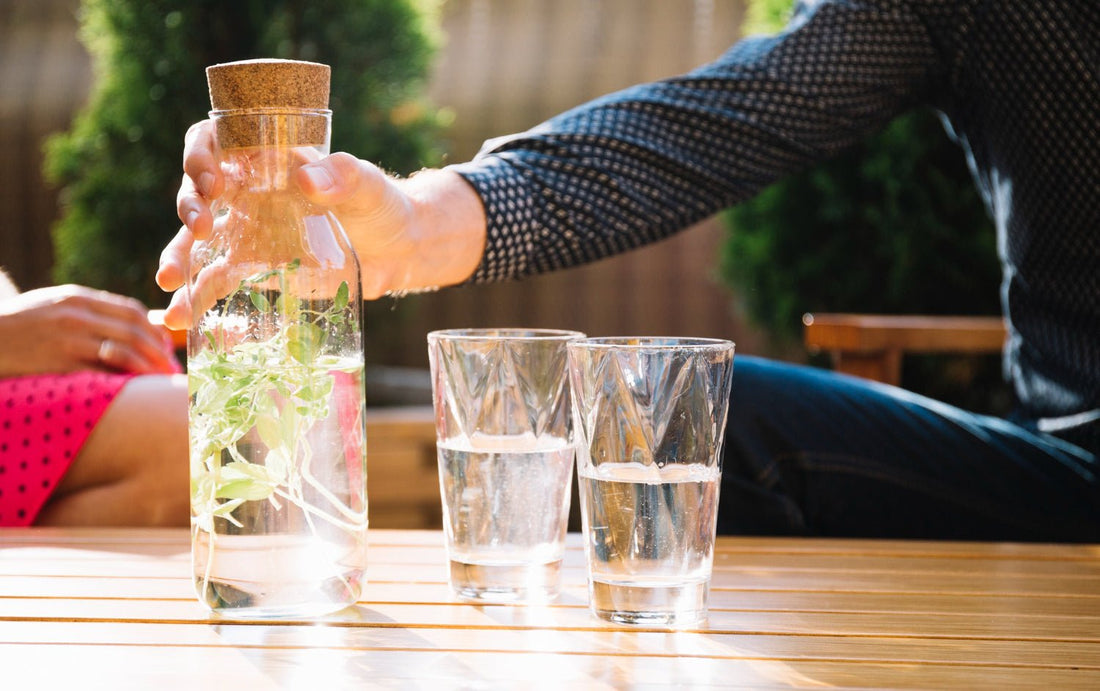
Health Benefits of Staying Hydrated
Share
When we think of basic human needs, food, air, and shelter might come to mind immediately. However, there’s another essential component to this list that often goes unnoticed until we really need it - water. Staying hydrated isn’t just a matter of quenching our thirst. It plays a pivotal role in virtually every aspect of our body functions. Let's explore the numerous health benefits of keeping our bodies well-hydrated.
1. Enhances Physical Performance
Hydration is crucial during physical activities. Even slight dehydration can severely impact your physical performance. If you engage in intense workouts or long athletic events, losing as little as 2% of your body's water content can lead to reduced motivation, increased fatigue, and make exercise feel much more challenging both physically and mentally. Adequate hydration helps to prevent this, maintaining your stamina and coordination, and enhancing your ability to perform physical activities at your best.
2. Significantly Affects Energy Levels and Brain Function
Your hydration status strongly influences your brain function. Studies show that even mild dehydration (such as the loss of 1–3% of body weight) can impair many aspects of brain function. For instance, a fluid loss of 1.4% after exercise impairs both mood and concentration and increases the frequency of headaches. Keeping hydrated is particularly crucial during intense mental tasks and can thus improve your productivity.
3. Prevention and Treatment of Headaches
Dehydration can trigger headaches and migraines in some individuals, with numerous studies supporting this. For those who are prone to headaches, increasing water intake can help prevent the onset or reduce the severity. While dehydration headaches only require simple rehydration to relieve, preventing dehydration is an even better strategy.
4. Helps With Digestion and Constipation
Hydration is a critical factor in digestion. Water helps to dissolve fats and soluble fiber, allowing these substances to pass through more easily. Adequate hydration also serves to prevent constipation since water is necessary to bulk up stools and move digestion along. For individuals experiencing constipation, increasing water intake is one of the first recommended corrections.
5. Aids in Weight Loss
Water can be incredibly helpful when it comes to weight loss. For starters, drinking water can boost the number of calories you burn, often referred to as resting energy expenditure. In adults, drinking water increases resting energy expenditure by 24–30% within 10 minutes of drinking and lasts at least 60 minutes. Furthermore, drinking water before meals can lead to reduced calorie intake as it fills you up and naturally reduces your appetite.
6. Flush Out Toxins
One of the roles of fluids in the body is to flush out toxins and transport nutrients to where they’re needed. Adequate water intake enables your kidneys to efficiently filter waste from the blood and excrete it through urine. In addition, proper hydration can help prevent kidney stones and protect you from urinary tract infections.
7. Improves Skin Health
Our skin contains plenty of water and functions as a protective barrier to prevent excess fluid loss. However, dehydration can make your skin more vulnerable to skin disorders and premature wrinkling. Although the effect of hydration on skin health isn’t direct, it's linked to skin’s plumpness, elasticity, and resiliency.
8. Maintains Electrolyte Balance
Water helps in maintaining optimal electrolyte balance, which is essential for numerous bodily functions such as muscle contraction and nerve function. Electrolytes, including potassium, sodium, and magnesium, play a part in conducting electrical charges from cell to cell. Keeping your body hydrated ensures that these electrolytes are able to carry out their roles, aiding in overall bodily function.
9. Helps Maintain Overall Health
Water is vital in almost all body functions. It's essential for maintaining body temperature, cushioning joints, and protecting sensitive tissues and organs. Adequate hydration also helps in transporting oxygen and essential nutrients to cells, which is crucial for overall health.
Tips to Stay Hydrated
Now that we understand the importance of staying hydrated, here are a few practical tips to increase your water intake:
- Carry a Water Bottle: Always have a water bottle on hand. If you carry something like a stylish glass tumbler with a bamboo lid, it’s both a fashion statement and a great reminder to keep sipping.
- Infuse Your Water: If you find plain water boring, add a slice of lemon, lime, or cucumber for some naturally flavored refreshment.
- Drink Water Before Each Meal: One good habit is to drink a glass of water before each meal. It not only aids digestion but also helps control caloric intake.
- Use an App: There are many apps available that help you track your daily water intake. They can be fun and an excellent way to stay committed to hydration.
- Eat More Water-Rich Foods: Incorporate more fruits and vegetables that are high in water content into your diet. Foods like cucumber, zucchini, watermelon, and grapefruit can help keep you hydrated.
Remember, the amount of water needed can vary depending on various factors, including your health, activity levels, and where you live. One of the simplest ways to gauge your hydration level is to check the color of your urine; pale and clear means you're well hydrated. If it's dark, you likely need to drink more water.
Stay hydrated and embrace the countless benefits it brings not just to your physical health but your overall well-being. Drink up and allow your body to perform at its best every day!
